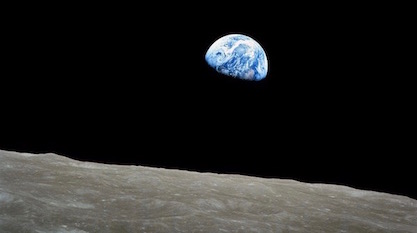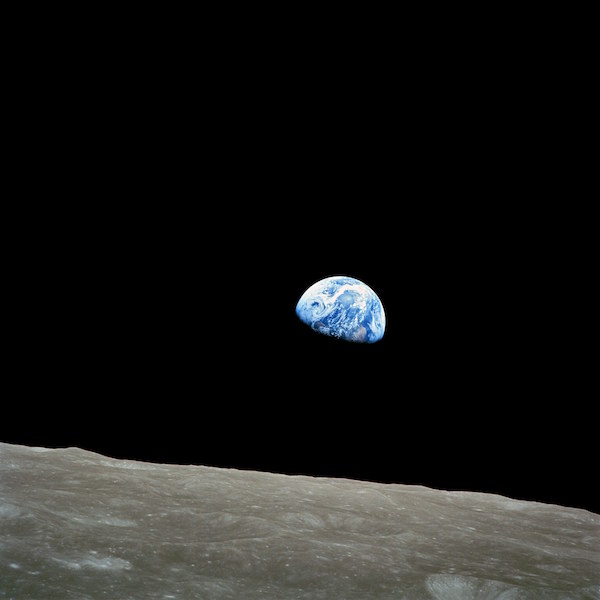 Physics, Earth & Space
Physics, Earth & Space
Stephen Hawking: Off the Planet, to the Moon, in 200-500 Years


Hawking’s comments are reported in the Washington Post:
Humans are overdue for a return trip to the moon, Stephen Hawking has just opined.
Speaking on Tuesday at the Starmus Festival, a science-slash-musical gathering, the astrophysicist offered two parts doom cut with one part scientific optimism. He argued that we should prepare for a cosmic exodus to take place in the next 200 to 500 years.
“We are running out of space, and the only place we can go to are other worlds. It is time to explore other solar systems,” he said via video link to the audience gathered in Trondheim, Norway. “Spreading out may be the only thing that saves us from ourselves. I am convinced that humans need to leave Earth.”
Hawking’s plan to boogie off this planet is ambitious: Countries should collaborate to construct a moon colony within 30 years. We can reach Mars “in the next 15 years,” he said, with a base to follow a few decades later.
I am struck by the similarities between Hawking’s call for space exploration and the wailing and gnashing of teeth about the Paris climate accords.
Both are predicated on a doomsday scenario, which appeals to what Carl Jung would call a sort of collective unconscious about a future judgment. (Just as Feuerbach and Marx transformed the Old Testament prophets into the soteriology of dialectical materialism, Gaia worshippers have transformed the Last Judgment of Christianity into an environmental apocalypse.)
Both fail the test of rationality. Predictions of overpopulation are as old as Malthus and as recent as Paul Ehrlich’s Population Bomb. Even assuming a rapid population growth (which has appeared more and more outlandish with each passing year), it makes no sense to explore the moon or other planets. Who in their right mind would trade a tenement in the worst part of the Bronx for the life of Matt Damon on Mars? And the expense would be absolutely astronomical (if I may use that word).
The likelihood of the overpopulation apocalypse occurring is quite small. But the cost of avoiding it by sensible means — figuring out ways to live comfortably in crowded conditions — is vastly less than the expense of escaping to another planet. Investing in space exploration as a cure for overpopulation is sheer lunacy.
Similarly, almost all of the efforts to reduce “greenhouse gases” are lunacy. The cost of adjusting to a warmer climate (even assuming we had a warmer climate, and it resulted from human activity) are infinitely smaller than the cost of trying to eliminate the supposed human cause of a warming planet.
I suspect the reason people — actually very smart people like Stephen Hawking — propose these dumb ideas is because they believe in the project for other reasons. For example, exploring space may be one of the most exciting things that human beings can do, and you can make a case that we should do more of it. It’s just that you can’t justify it as a cure for overpopulation.
For similar reasons, people who enthuse about the Paris accords can’t really believe that they make economic sense. They probably believe in it for other reasons, e.g., the prospect of greater international “cooperation” (i.e., the ultimate subservience of the nation-state to a more enlightened world government). The reason for “investing” in these crazy ideas has little to do with the risks we actually face or the relationship between those risks and the costs of trying to avoid them.
The latter is an ad hominem argument, to be sure (attacking the motives of these advocates rather than the position they advocate), but I think it helps explain what is otherwise incomprehensible.
Photo: Earth as seen from the Moon, by NASA / Bill Anders [Public domain], via Wikimedia Commons.
